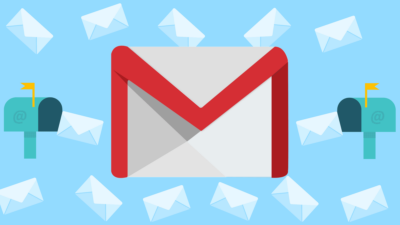TL;DR:
- Gmail was launched on April 1, 2004, in response to a user’s complaint about existing email services.
- On its 20th birthday, Gmail is introducing stricter authentication requirements for bulk senders to personal accounts.
- With over 1.2 billion users, Gmail has solidified its position as the world’s leading email service.
Gmail, Google‘s famous email service, is celebrating its 20th birthday on April Fool’s Day, 2024. Launched on April 1, 2004, Gmail’s inception was anything but a joke. It was born out of a user’s frustration with the limitations of existing email services and a Google engineer’s desire to create a better solution.
The idea for Gmail originated from a user’s complaint about spending too much time filing and deleting emails due to the meager storage limits of the time. This resonated with Google co-founder Larry Page, who tasked an engineer to explore a “20 percent time” project to address the issue. After countless hours and millions of M&Ms consumed, Gmail was born.
From the outset, Gmail aimed to revolutionize the email experience by offering unprecedented storage capacity, lightning-fast search capabilities, and a conversation view that organized emails into meaningful threads. At launch, Gmail provided users with a staggering 1 gigabyte of free storage – more than 100 times the industry standard at the time.
Over the past two decades, Gmail has evolved into a powerhouse, with an estimated 1.2 billion users worldwide. As Google co-founder Sergey Brin aptly stated in the press release first announcing Gmail, “If a Google user has a problem with email, well, so do we.”
What’s Next For Gmail?
On its 20th birthday, Gmail isn’t resting on its laurels. Instead, Google is ushering in a new era of email security by enforcing stricter authentication requirements for bulk senders to personal Gmail accounts.
Starting April 1, 2024, any sender who has sent close to 5,000 messages to Gmail accounts within a 24-hour period will be classified as a “bulk sender.” These senders must now authenticate their emails using industry-standard protocols like DMARC, DKIM, and SPF to validate the email’s origin. This move aims to eliminate loopholes exploited by attackers, reducing the influx of spam and malicious content into Gmail inboxes.
While these new security rules may seem like a no-brainer for legitimate email marketers, they underscore Gmail’s commitment to addressing user concerns and providing a safer, more spam-free email experience.
Happy Birthday Gmail
As Gmail celebrates this 20-year milestone, it’s clear that its journey has been one of continuous innovation and user-centric improvements. From its humble beginnings as a “20 percent time” project to its current status as the world’s leading email service, Gmail has consistently aimed to solve real user problems and enhance the email experience.
So, here’s to Gmail’s 20th birthday – a celebration of its past achievements and a testament to its ongoing dedication to making email better for all.
Gmail turns 20 today! Born from a user complaint, Gmail continues to innovate with new security rules for bulk senders, ensuring a safer and spam-free email experience for its 1.2 billion users. #GoogleGmail #EmailMarketing Share on X











 Account Info For 73 Million Users Found On ‘Dark Web’ After Latest AT&T Data Breach
Account Info For 73 Million Users Found On ‘Dark Web’ After Latest AT&T Data Breach
Leave a Reply
You must be logged in to post a comment.